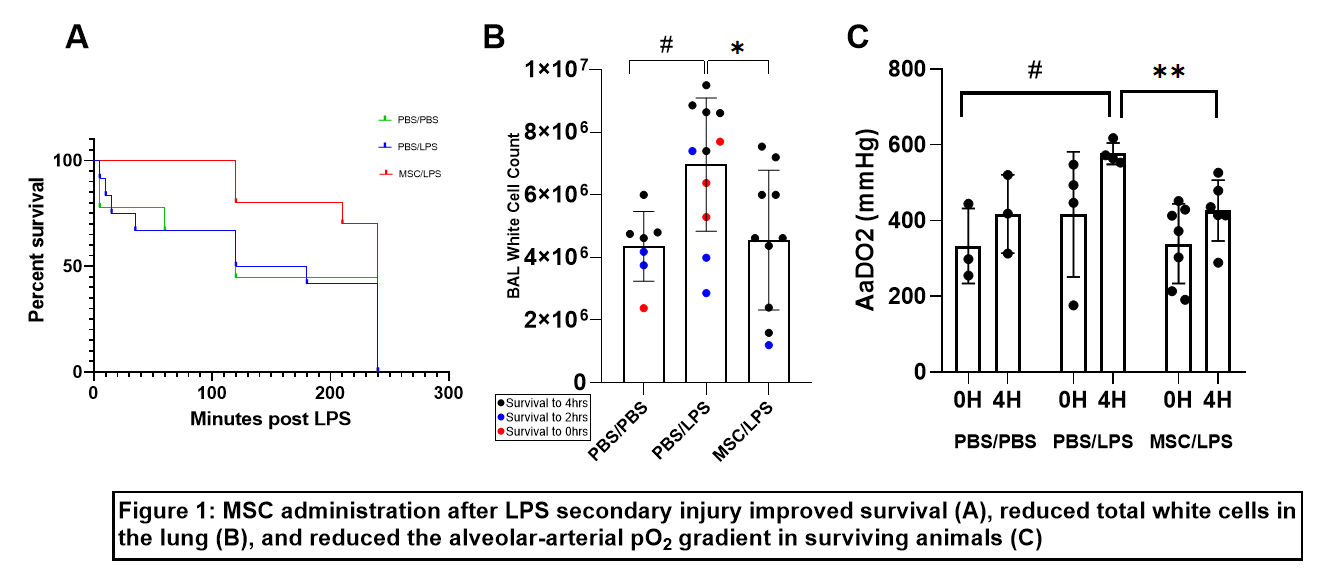Abstract
Introduction: Pulmonary sepsis is a leading cause of ARDS and death in critically ill patients. Critically ill sepsis patients are at risk of secondary infection due to acquired immunosuppression after prolonged infection [Hotchkiss, 2013]. Here, we aimed to show that in a clinically relevant model of prolonged infection followed by subsequent lipopolysaccharide (LPS) injury, mesenchymal stromal cells (MSCs) could confer a protective effect.
Methods: Adult rats received an intratracheal bolus of antimicrobial resistant K.pneumoniae bacteria to induce pulmonary sepsis. MSCs or vehicle control (PBS) were given intravenously after 1h. 72h later animals were mechanically ventilated. Intratracheal LPS or PBS was administered, and ventilation continued for 4h. Compliance, haematology, and blood gas analyses were carried out pre-mortem. Blood, BAL, and lung tissues were analysed post-mortem for cell counts, bacterial content, and inflammatory cytokine levels.
Results: MSC administration increased survival compared to control animals and attenuated the LPS induced decrement in lung function in terms of arterial oxygenation and AaDO2. Total white cell counts in the lung were decreased by MSCs after LPS injury and neutrophil fraction was also reduced.
Conclusion: MSCs effectively attenuated secondary lung injury and improved survival. Further investigation is needed to ascertain the exact mechanism of action.
